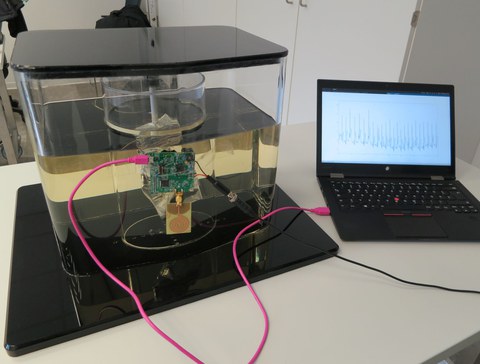Jan 13, 2022
Young scientists at TU Dresden optimize intelligent implants to better detect heart attacks in the future
Young scientists from the Faculty of Electrical and Computer Engineering at TU Dresden have developed an economical, wireless communication system for intelligent wireless heart implants as part of the "MEDICOS - Medical Implant Communication System" project. During the three-year project, the researchers were able to improve the functionality and energy efficiency of the implants. The communication system they developed offers high performance to process complex biosignals and minimize invasive surgery.
"Especially in light of the aging population with chronic and degenerative diseases, the diagnostic and therapeutic options improved by smart implants promise effective and also cost-efficient solutions," said Maximilian Becker, research associate at the Chair of Circuit Design and Network Theory. "Our communication system enables better data connectivity and processing, optimized implant networking, and significantly improved energy efficiency. In a nutshell, it allows for extended battery life and functionality of the implants."
To achieve this, the researchers have developed new algorithms and parameters for detecting and predicting critical cardiac events. Among other things, they enable significantly better detection of acute myocardial infarction and thus the early initiation of appropriate measures. The developed algorithms are applicable to both extra- and intracorporeal signals as well as to other biosignals besides the electrocardiogram (ECG) and are therefore suitable for continuous monitoring.
In addition, the scientists have developed and optimized highly efficient miniature antennas for in-body applications. They have succeeded in reducing the antenna size to one tenth of the effective wavelength. At the same time, the efficiency of the in-body antennas was improved by 24 percent compared to the previous state of the art.
The project also developed a transceiver with a data rate of up to 1 Mbit/s with a very economical sleep mode for medical implants. It transmits acquired data from the implant to an external control station on demand. A nanowatt wake-up receiver with adaptive data rate was developed for the wake-up function.
The MEDICOS project was funded by the European Social Fund (ESF).
Information for journalists:
Maximilian Becker
Chair of Circuit Technology and Network Theory
Tel.: 0351 463-33789
maximilian_gottfried.becker@tu-dresden.de


